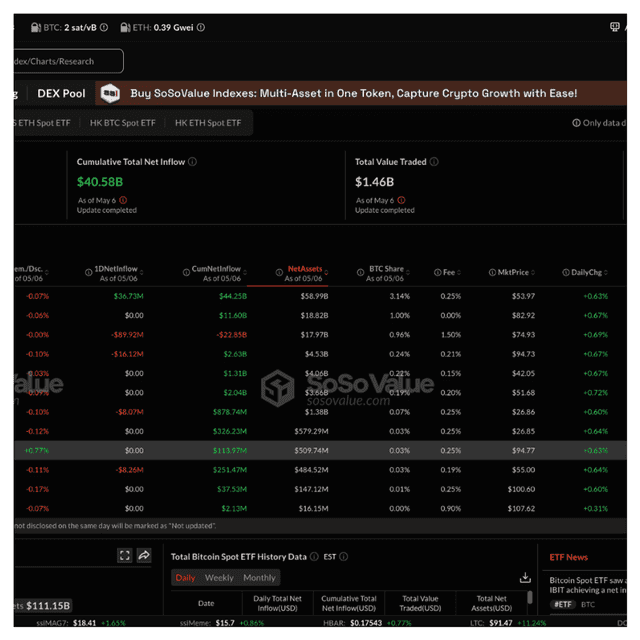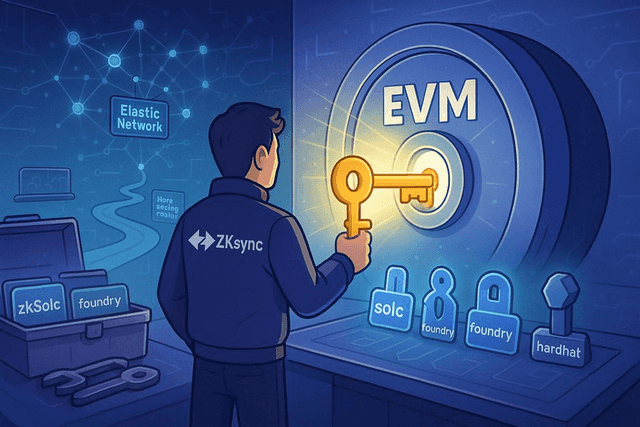2025-05-07 15:50
BLOCKMEDIA

Image source: Block Media
# Vietnam Moves Towards Regulated Crypto Framework, Eyeing Sandbox Implementation by Mid-2026
Vietnam is shifting from its cautious stance on cryptocurrencies by creating a structured regulatory framework, aiming for a cryptocurrency sandbox system by mid-2026. Companies that engage early during this pre-regulatory phase can secure a leading position as Vietnam's cryptocurrency market becomes more institutionalized.
Success in the Vietnamese cryptocurrency market will increasingly depend on regulatory adaptability, operational transparency, and the ability to swiftly navigate changes rather than solely on technological innovation.
## Vietnam's Crypto Market: Thriving Amid Regulatory Uncertainty
Since 2021, Vietnam has consistently ranked in the top five of the Global Crypto Adoption Index by Chainalysis, confirming its status as a dynamic cryptocurrency market. Over 21% of the adult population is reported to own or have used cryptocurrency, with annual inflows into the market exceeding $100 billion. The enthusiasm is primarily driven by the younger generation, engaging in trading through global exchanges, self-custody wallets, P2P transactions, decentralized finance (DeFi), and GameFi platforms.
However, this vibrant market contrasts sharply with the regulatory environment. Vietnam’s government does not recognize cryptocurrencies as legal tender, and the State Bank of Vietnam (SBV) has officially banned their use for transactions. Though individuals can hold and trade cryptocurrencies, the market operates in a legal grey area. There are no licensing systems for key crypto infrastructure providers like exchanges, custodians, and stablecoin issuers, hampering market development.
This regulatory void has contributed to the Financial Action Task Force (FATF) placing Vietnam on its "grey list," citing deficiencies in anti-money laundering (AML) compliance related to virtual assets. This has led crypto firms to relocate to jurisdictions with clearer regulatory frameworks, such as Singapore, further causing a brain drain and loss of investment opportunities.
This report explores the regulatory status of Vietnam's cryptocurrency sector, examines the stances of key regulatory bodies, and provides insights into how the government's recent regulatory initiatives may shape the market's future.
## Fragmented Oversight: Key Vietnamese Regulatory Authorities
Vietnam's regulatory landscape is shaped by multiple agencies with differing priorities and perspectives. Understanding these roles is vital for navigating the industry.
### 1. State Bank of Vietnam (SBV): Ensuring Financial Stability
The SBV holds the most conservative view among Vietnam's regulatory authorities. In 2017, the SBV issued a directive banning the use of cryptocurrencies as a payment method (5747/NHNN-PC), citing financial stability risks. While skeptical of cryptocurrencies, the SBV acknowledges blockchain technology's potential, exploring its application through a central bank digital currency (CBDC) pilot from 2021 to 2025. However, this initiative focuses on controlled, state-driven implementation rather than fostering a competitive crypto market. The SBV’s cautious stance perpetuates regulatory uncertainty, limiting broader crypto adoption.
### 2. Ministry of Finance (MoF): Balancing Regulation and Innovation
Contrasting the SBV’s conservatism, the Ministry of Finance (MoF) has taken a proactive approach to the crypto industry. Recently, it announced plans to launch a cryptocurrency sandbox program in collaboration with global exchanges like Bybit, aiming to lay the groundwork for Vietnam’s crypto regulatory framework.
Since 2021, the MoF has operated a specialized cryptocurrency research team tasked with enhancing tax filing systems, ensuring transparency in funding sources, and establishing standards for crypto-linked financial products. The ministry’s primary goal is to balance innovation with effective oversight, minimizing risks such as tax evasion and financial misconduct. Efforts include developing licensing systems for exchanges, custodians, and stablecoin issuers.
By offering opportunities to compliant businesses while enforcing strict standards on taxation, financial disclosures, and AML compliance, the MoF seeks to cultivate a healthy cryptocurrency ecosystem.
### 3. State Securities Commission (SSC): Safeguarding Market Integrity
The State Securities Commission (SSC), overseeing Vietnam's capital markets, holds a cautious view on tokenized assets. Its main focus is determining whether digital assets used for investment purposes should be classified and regulated as securities. The SSC has expressed concerns over potential "hidden securities issuance" through mechanisms like initial coin offerings (ICOs), security token offerings (STOs), and DeFi projects, often bypassing traditional disclosure, investor protection, and anti-fraud norms required in capital markets. This approach delays the integration of security and investment tokens into Vietnam’s financial ecosystem, creating uncertainty for projects exploring tokenization models.
### 4. Ministry of Justice (MoJ): Aligning Digital Assets with Laws
The Ministry of Justice (MoJ) focuses on ensuring legal consistency for digital assets. It has proposed formally defining digital assets in Vietnam’s Civil and Commercial Codes to address ownership rights and clarify legal contracts for tokenized assets. However, slow progress—caused by compatibility issues with existing laws and interagency coordination failures—exposes crypto businesses and investors to legal risks. Nevertheless, occasional legal rulings have categorized cryptocurrencies as “assets with financial value,” providing some degree of recognition.
### 5. Ministry of Public Security (MoPS): Combating Financial Crimes
The Ministry of Public Security (MoPS) takes a firm stance against cryptocurrency misuse in financial crimes. The MoPS prioritizes cracking down on fraudulent schemes, illegal fundraising, tax evasion, and money laundering involving digital assets. It has pushed for stricter Know Your Customer (KYC) requirements and mandatory reporting for suspicious transactions linked to crypto platforms.
## Vietnam's Crypto Regulatory Journey: Past and Future
For years, Vietnam's regulators struggled to establish a coherent legal framework as cryptocurrency adoption surged. While financial stability and risk management remained shared goals, overlapping jurisdictions and policy misalignment delayed progress.
- **2017:** The SBV banned cryptocurrency payments, creating a legal grey zone for P2P trading and private ownership. Market growth continued despite the absence of investor protections.
- **2018–2021:** This period saw explosive growth in crypto activity and related fraud. Regulatory gaps led companies like Sky Mavis and Kyber Network to relocate overseas, causing talent and investment outflows.
- **2022:** The Vietnam Blockchain Association (VBA) formed to advocate for blockchain development and regulatory frameworks.
- **2023:** FATF placed Vietnam on its grey list, intensifying calls for stricter crypto regulation.
- **2024:** The "National Blockchain Strategy 2024–2030" outlined objectives, including legal recognition for blockchain applications, fostering local platforms, and expanding blockchain use in industries.
- **2026:** Vietnam plans to launch a regulated crypto sandbox, enabling controlled experimentation in the sector.
## Vietnam's Crypto Sandbox: A New Era of Controlled Experimentation
Vietnam is transitioning from passive observation to active management with the development of a crypto sandbox program, led by the MoF in collaboration with global platforms like Bybit. This initiative aims to validate compliance systems, AML/KYC procedures, and stablecoin mechanisms within a controlled, regulatory environment. While details remain under wraps, international collaboration highlights Vietnam’s intent to align with global standards.
Beyond the sandbox, the government’s broader blockchain strategy envisions blockchain as a core pillar of Vietnam’s digital transformation, with goals including legal recognition for applications and fostering "Made-in-Vietnam" blockchain platforms.
These initiatives signal a pivotal shift, redefining blockchain from a speculative asset into vital digital infrastructure. Businesses aligning with Vietnam's regulatory trajectory can influence policy formation and lay the groundwork for future market leadership.
## Conclusion
Vietnam stands at a critical juncture in its digital asset journey. Long constrained by regulatory ambiguity, the government is shifting to a more structured and proactive engagement model. Efforts such as the development of a crypto sandbox, the announcement of a national blockchain strategy, and drafting comprehensive legislation underscore this transition.
While challenges remain—balancing innovation with financial stability and global compliance—Vietnam's evolving regulatory landscape presents substantial opportunities. Companies preparing to meet new standards and engaging with regulators now are likely to emerge as market leaders once the framework solidifies.
Success in Vietnam’s cryptocurrency sector will be defined by adaptability to regulations, operational transparency, and strategic foresight. Those navigating these dynamics effectively may secure a foothold in Southeast Asia’s burgeoning digital economy.
View original content to download multimedia: https://www.blockmedia.co.kr/archives/902966




